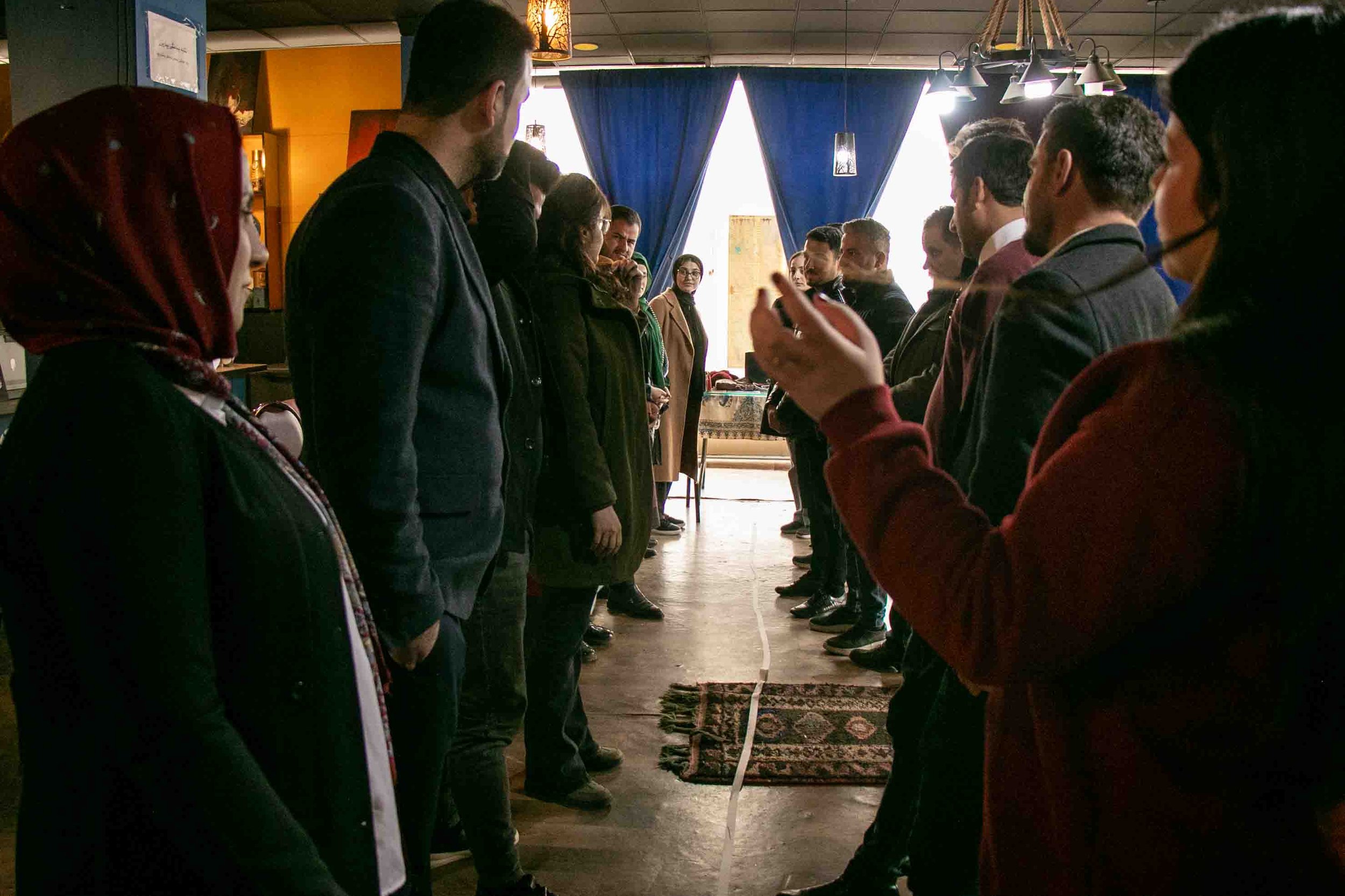Training for Peace in Iraqi Kurdistan
Earlier this year, a carload of CPT team members made a trip to the small Kurdish city of Soran. Surrounded by snow-capped mountains, we gathered in the local cinema/bookstore/cafe. Joining us were a group of 20 local journalists, teachers and civil activists. We sat down for two days of discussions, thought exercises and role plays that make up a CPT non-violence training.
Our small group of facilitators came from different corners of the globe and had varying experiences we brought to the training, and we were capably led by Runak Radha - a veteran of many CPT trainings.
CPT began doing the trainings in 2014. It was inspired by the Alternatives to Violence Project - an initiative begun by Quakers in the 1970’s who went into prisons to engage with violent offenders.
The context in Iraqi Kurdistan is very different to an American prison, but violence has been a frequent part of life for many people here. Of course there’s the wars - six separate conflicts since the 1980’s, plus decades of Iraqi violent repression and Kurdish armed resistance. These days there is still an undeclared war being fought in the border regions, with Turkish bombings and incursions an everyday occurrence.
But violence is even more widespread than that - it is frequently present in the repression of political -dissent, and like most places there are issues with domestic violence against women and children.
But in CPT’s training we delve deeper - going beyond physical harm to highlight psychological, systemic and cultural violence. The CPT training is a set of exercises carefully designed to enable participants to recognise violence in all its forms, and to imagine alternative possibilities of a more peaceful world.
The methods are varied. There are roleplays, artistic exercises, small group discussions, even games that either carry embedded meanings or are just designed to loosen up inhibitions and get people relating to each other.
This type of learning is not common in Kurdistan, where some participants are expecting something more like a seminar. It’s a bit confronting being asked to participate so actively. But the medium of how the training is done is as important as the message it contains - Runak says activities such as learning new interaction methods, community building, and transforming power have helped change participants’ understanding of non-violence in their daily interactions.
Often it is a rare place where people are able to share their experiences of violence. Runak tells me that for some people who have experienced bombardments, speaking about it can bring up difficult emotions. But if they do, it can be a powerful space for people to share and have the sense they are not alone; and also to get the benefit of the group’s support and knowledge.
To challenge violence in all its forms is a huge undertaking - it is deeply embedded in our world; and each violent act can multiply itself through revenge, grievance and trauma. But CPT’s long experience in conflict zones around the world have led to the conclusion that real peace comes not just from stopping the bombs and guns but by investigating the human impulses and structural inequalities that create violent situations.
I ask Runak what impacts she has seen from the trainings. She tells me that immediately she can notice people’s understandings shift - not just from the content of the training, but the methods. She says people value the opportunity to share their thoughts and experiences without fear of being judged. She says she finds it a sign of success when participants ask CPT to provide more trainings.
Can it work to reduce the extreme violence that CPT witnesses in our work - the bombings and deaths from Turkish military occupation? That’s a big ask of a little workshop in a cafe. But violence doesn’t begin with bombs and shells - these things would not happen without the mindsets that dehumanise others. Runak says the trainings are a slow way to bring about change, but can be very helpful for people to understand what is behind these difficult feelings - that justify violent acts for various reasons - and find a way to deal with them. The trainings try to open up people’s understanding of the bombings, to see the varied impacts of the war, and explore non-violent ways for journalists and activists to confront power.
In Kurdistan, like so many places around the world, people are trained their whole lives for violence. Either explicitly - in the military, security forces or paramilitary groups - or more subtly in the same way we have all been enculturated into violent societies. To train for peace requires a lot of unlearning, and some new ideas and skills. But what a vital task it is - and CPT is blessed to be able to do our small bit, with the people of Iraqi Kurdistan in places like Soran.





